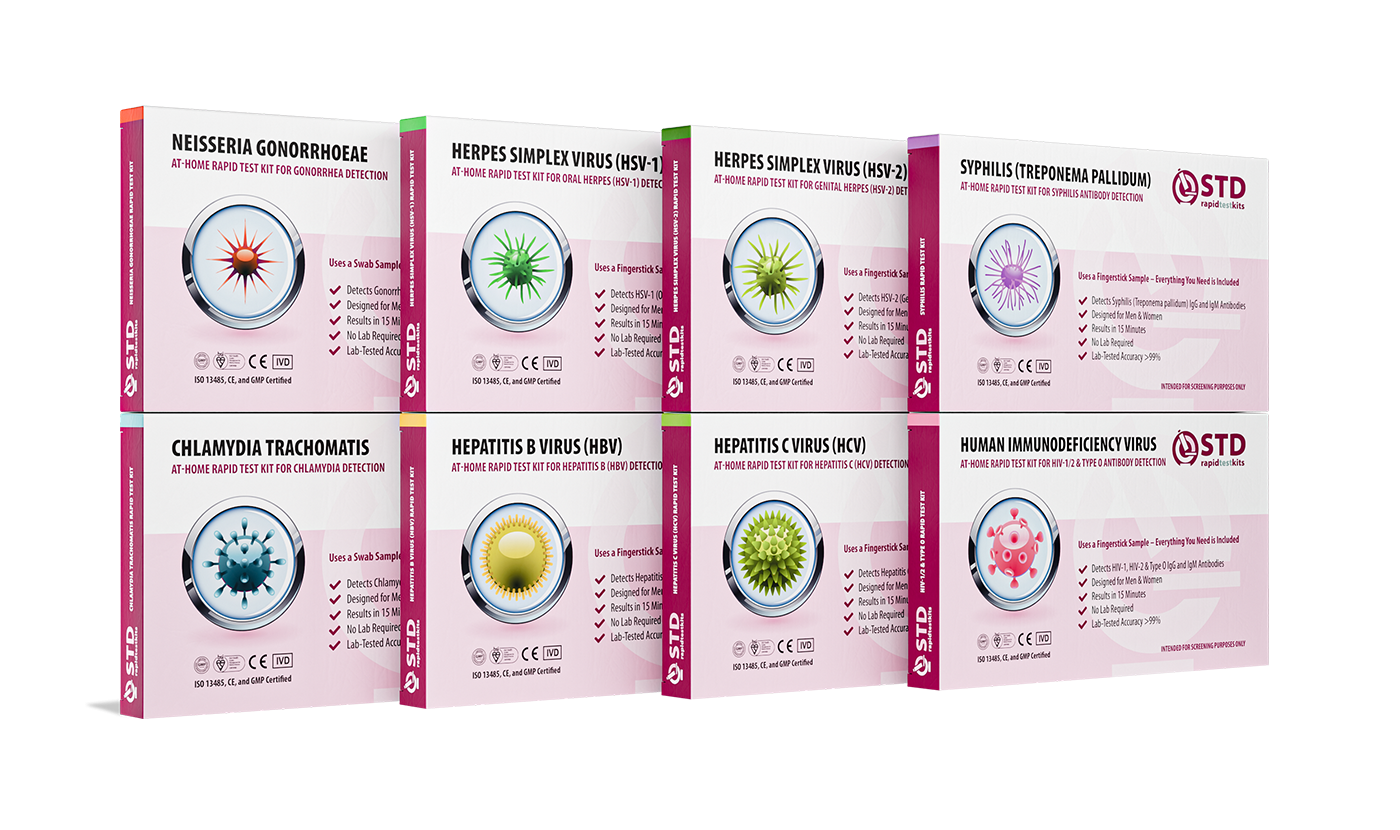Quick Answer: Religious shame can keep people from getting tested for STDs by making them feel guilty, sinful, or "bad" for having symptoms or asking for help. This delay raises the chances of complications, spreading the disease, and long-term emotional pain.
Case Study: “I Thought Being a Virgin Meant I Was Safe”
Katie, 24, was raised in a conservative Christian household that praised abstinence and purity pledges. “We weren’t even allowed to say the word ‘condom,’” she said. “If someone got pregnant or got an STD, it meant they were morally broken.” So when Katie developed painful sores on her labia, she froze. “I hadn’t had intercourse. Only oral. I thought I was protected.”
“I waited over a month. I was in denial. I felt dirty. Like God was punishing me.”
When she finally got tested, through an at-home kit, Katie found out she had Herpes. It was a shock. But the deeper pain was emotional: “I didn’t just feel sick. I felt like I’d betrayed my entire upbringing.”
Katie’s story isn’t rare. In fact, it’s echoed in countless threads, studies, and testimonials: faith-based shame delays critical testing, sometimes for months or years. And the consequences? Physical harm, emotional trauma, and continued silent transmission.

People are also asking: Can You Get Trich from a Hot Tub?
Why Shame and Silence Become Health Risks
STD testing isn’t just a medical act, it’s an emotional minefield when shame is involved. People who grow up in strict religious environments are often taught to link sexual behavior with morality. So if something goes wrong, they don’t just worry they’re sick. They worry they’re bad.
According to a 2019 study in the Journal of Religion and Health, individuals with high religious involvement were significantly less likely to seek STD testing, even when sexually active. Researchers found that perceived “sexual sin” was a stronger deterrent than access or cost.
That stigma doesn’t disappear in adulthood. Many carry those messages for life:
- “Only bad people get STDs.”
- “If I don’t get tested, I can’t be guilty.”
- “What if someone from my church sees me at the clinic?”
These inner scripts delay diagnosis and increase risk, not just for the individual, but for their partners. One delay becomes another infection. Silence spreads faster than any virus.
STDs Don’t Care About Your Beliefs, But Shame Still Hurts
Let’s be real: your immune system doesn’t care if you prayed last night. STDs are caused by bacteria, viruses, and skin-to-skin transmission, not sin. But our feelings, our upbringing, and our fears? Those absolutely affect when and how we get care.
One common example: Herpes. Over half of U.S. adults carry HSV-1 or HSV-2, and many don’t even know it. It’s spread easily, often through kissing, oral sex, or skin contact. But people raised in religious homes often believe it’s a punishment for “bad behavior.”
That myth keeps people from:
- Recognizing early symptoms like itching, burning, or small sores
- Getting tested during the contagious (but symptom-free) phase
- Disclosing to partners, due to intense shame
Faith isn’t the enemy. But when fear and morality hijack your health choices, it can become a barrier to truth, and healing.
And the truth is: you deserve answers, not silence.
The Virginity Myth: Why “Waiting” Doesn’t Mean You’re Safe
One of the most harmful misconceptions in purity culture is that abstaining from vaginal intercourse means you’re “protected” from STDs. In reality, you can contract infections through oral sex, mutual masturbation, skin contact, or shared sex toys.
People raised in religious homes often report not receiving this information until after they’re symptomatic. And worse, because they still identify as “virgins,” they often dismiss signs like:
- Burning during urination (common with Chlamydia or Gonorrhea)
- Genital itching or sores (Herpes or HPV)
- Unusual discharge or odor
- Rash that looks like irritation (sometimes Syphilis)
Delays like this are devastating. Some STDs cause irreversible damage to fertility, or increase HIV transmission risk. Others, like Syphilis, are curable, if caught early. The tragedy is, testing is easy. The shame is what makes it hard.
You can believe in abstinence and still take your body seriously.
6-in-1 STD At-Home Rapid Test Kit lets you get tested discreetly, without ever stepping into a clinic. If fear of being “seen” has kept you silent, this is your bridge to truth.
Check Your STD Status in Minutes
Test at Home with Remedium7-in-1 STD Test Kit

 For Men & Women
For Men & Women Results in Minutes
Results in Minutes No Lab Needed
No Lab Needed Private & Discreet
Private & DiscreetOrder Now $129.00 $343.00
For all 7 tests
Spiritual Guilt vs. Medical Reality: Who Told You It Was a Sin?
Here’s a hard truth: getting tested is not a sin. But if you were raised to believe that sexuality should only exist inside marriage, or that even thinking about sex is impure, then simply asking for an STD test can feel like admitting to failure.
This false moral framework keeps people trapped in silence. According to a 2021 paper published in Sexuality & Culture, many religious individuals delay testing not because they lack information, but because testing feels like a moral admission.
But here’s what medical reality says:
- Most STDs show few or no symptoms in early stages
- You can get infected the first time you have any type of sex
- Testing is the only way to confirm if you're infected
You wouldn’t pray away a broken bone. You wouldn’t call a pregnancy test “sinful.” So why do we treat STD testing differently? This isn't about right or wrong. It's about knowledge, healing, and respect for your body.
If your faith teaches compassion, apply that compassion to yourself.
Faith, Queerness, and Testing: A Triple Bind
Let’s talk intersectionality. For many LGBTQ+ people raised in religious households, testing isn’t just about stigma, it’s about survival. The fear isn’t just “What if I have something?” It’s “What will they think I am?”
Jay, 27, grew up in a conservative Pentecostal home. “When I got a burning sensation after a hookup, I didn’t just feel sick, I felt damned. Like this was confirmation that I’d become what they warned me about.”
“I didn’t get tested for 3 months. I was scared someone would recognize me at the clinic. I was scared they’d think I deserved it.”
Jay eventually used an at-home testing kit. It came back positive for Chlamydia. He got treated quickly and easily, but the emotional damage lingered. “It wasn’t the STD that broke me,” he said. “It was the shame.”
Religion should not be a barrier to health. Your body deserves attention, whether you're queer, straight, celibate, or exploring. You don’t need to out yourself to take care of yourself.
What Happens When You Wait Too Long
Here’s the part most people don’t Google until it’s too late: the consequences of delaying STD testing can be permanent.
According to the CDC, untreated Chlamydia and Gonorrhea can lead to pelvic inflammatory disease (PID), infertility, and increased risk of ectopic pregnancy. Syphilis can damage the brain and heart. HIV progresses silently for years before symptoms appear. And HPV, one of the most common STIs, can lead to cervical and anal cancers if undetected.
Most of these are treatable or manageable if caught early. But if shame stalls you? You may not find out until it’s already impacted your body.
Waiting doesn’t protect your reputation. It just risks your future.

People are also looking for: STDs in Porn: What Performers Really Do to Stay Safe
You Can Love God and Still Protect Yourself
We’re not here to bash faith. We’re here to say: faith and healthcare can co-exist. You can believe in abstinence and still know your status. You can be queer and still spiritual. You can be sexually active and still holy.
Getting tested is not a betrayal of your values, it’s an act of respect for your body, your partners, and your future. If your community won’t support that, there are tools that will.
Like this discreet at-home combo test kit. You test in privacy. You get answers fast. You take control, without shame, without exposure, and without anyone watching.
Your health isn’t sinful. Your body isn’t dirty. Silence is what causes harm, not sex.
When Silence Feels Safer Than Testing
Let’s name the fear: what if testing confirms your worst worry? What if it means admitting something to yourself, your faith, your parents, your partner?
But silence doesn’t spare you. It only delays you. It only deepens the anxiety, the dread, the “what if.” According to a 2021 meta-analysis in the Journal of Health Psychology, fear of judgment and moral condemnation are among the top psychological barriers to STI testing, even above fear of the result itself.
This is why at-home STD testing is such a breakthrough. It bypasses judgment. It removes the wait, the receptionist, the clipboard. You swab, you mail, you know. Just like that.
Case Study: “I Didn’t Deserve to Know What Was Wrong With Me”
Marcus, 32, grew up in a Black Southern Baptist church. He was celibate through college. At 30, he had his first sexual relationship, with someone he loved and trusted. A month later, he noticed irritation during urination and a slight discharge. He blamed stress. Then diet. Then God.
“I thought I was being punished. And I told myself, I didn’t deserve to know what was wrong with me. Because I broke the promise.”
Marcus waited four months. When he finally got tested, through an anonymous clinic, he was positive for both Gonorrhea and Chlamydia. It was a simple round of antibiotics. But the delay could’ve cost him his fertility.
“What made me sick wasn’t the infection. It was the story in my head that I had done something wrong just by being human.”
This is why we write. Why we talk about it. Why we name the shame. So the next Marcus doesn’t wait four months. Or four years. Or never.
Check Your STD Status in Minutes
Test at Home with Remedium8-in-1 STD Test Kit

 For Men & Women
For Men & Women Results in Minutes
Results in Minutes No Lab Needed
No Lab Needed Private & Discreet
Private & DiscreetOrder Now $149.00 $392.00
For all 8 tests
Testing Without Confession: Reclaiming Control
There is no altar call for STD testing. You don’t need to confess your past to earn care. You don’t need to justify your history to deserve answers.
You just need to act. Not from fear. From respect. From autonomy.
If you’re someone who’s been delaying testing, because of guilt, because of what you were told, because you’re scared, you’re not alone. And you’re not wrong. But you don’t have to stay there.
Here’s what testing without shame looks like:
- You recognize that your past doesn’t cancel your future
- You understand that infections don’t make you bad, they make you human
- You realize that knowing is better than wondering
- You choose privacy, clarity, and truth over silence
Order your at-home combo test kit here. It’s quick, accurate, and private. Because your health isn’t something you have to explain to anyone but yourself.
When Faith Teaches Fear Instead of Care
It’s one thing to be taught values. It’s another to be taught fear. Too many people, across denominations, identities, and generations, grow up learning that sex equals shame and that illness equals punishment.
But faith, at its core, is about compassion. Restoration. Wholeness. And you can’t be whole while ignoring your body’s needs out of fear of what others will say or think.
What if we reframed the act of getting tested as sacred? What if testing is how we honor the body we’ve been given? What if it's how we love our future partners, our community, ourselves?
STD testing isn’t the opposite of faith, it can be an expression of it.
And if your community can’t hold that truth yet, you’re still allowed to live it. Quietly. Bravely. In your own bathroom, with your own test kit, in your own time.
FAQs
1. Can you get an STD even if you're a virgin?
Yes. Many STDs can spread through oral sex, skin-to-skin contact, or shared sex toys, even if you’ve never had vaginal or anal sex.
2. Is getting an STD test a sin?
No. Testing is a responsible, protective act. It’s not a moral failure, it’s healthcare.
3. What if I'm scared someone from church will see me at the clinic?
You can use a discreet at-home test kit to avoid that fear entirely. Privacy doesn’t mean hiding, it means protecting yourself.
4. Can shame really make me sick?
Yes. Delaying testing out of shame can allow infections to worsen or spread. Emotional distress also weakens immune function over time.
5. How do I know if I need to get tested?
If you’ve had any kind of sexual contact, or even symptoms like burning, itching, or discharge, it’s time to get tested, whether or not you feel “at risk.”
6. What if I took a purity pledge?
A pledge isn’t a contract against biology. Testing doesn’t undo your values, it protects your future.
7. Are at-home STD tests accurate?
Yes. Many at-home tests are FDA-approved and clinically validated. They use the same testing methods as clinics.
8. What if I’m not ready to know the result?
You deserve time, but remember: knowing empowers you to take action. The fear is often worse than the truth.
9. Can I talk to my pastor or faith leader about this?
Some are supportive, but not all. Choose someone who will respond with care, not condemnation. If you’re unsure, start with a health provider or counselor.
10. How often should I get tested?
If you're sexually active, the CDC recommends annual testing. More frequent testing is advised if you have new or multiple partners.
You Deserve Answers, Not Assumptions
If you’ve made it this far, you’re probably holding some fear. Maybe some guilt. Maybe a memory of a sermon or a parent’s warning echoing in your head. Let that go.
Your body is not a moral battleground. It’s a home. A system. A story. And you deserve to know what’s happening inside it, without fear, without shame, without delay.
Testing doesn’t make you bad. It makes you brave. It makes you informed. And with discreet, at-home options, it’s never been easier to take that step.
Sources
1. PLOS ONE – Religion, Spirituality & HIV Prevention: Role of Faith Communities
2. PMC – Are Religion & Spirituality Barriers or Facilitators to HIV Treatment?
3. SAGE Journals – Prayer, Faith Healing Beliefs & Delay in HIV Testing
4. BMC Public Health – Religious Leaders’ HIV Messaging & Community Stigma (Trinidad Study)
5. ScienceDirect – Meta‑Analysis: Religious Faith & Sexual Risk Behaviors in Adolescents










